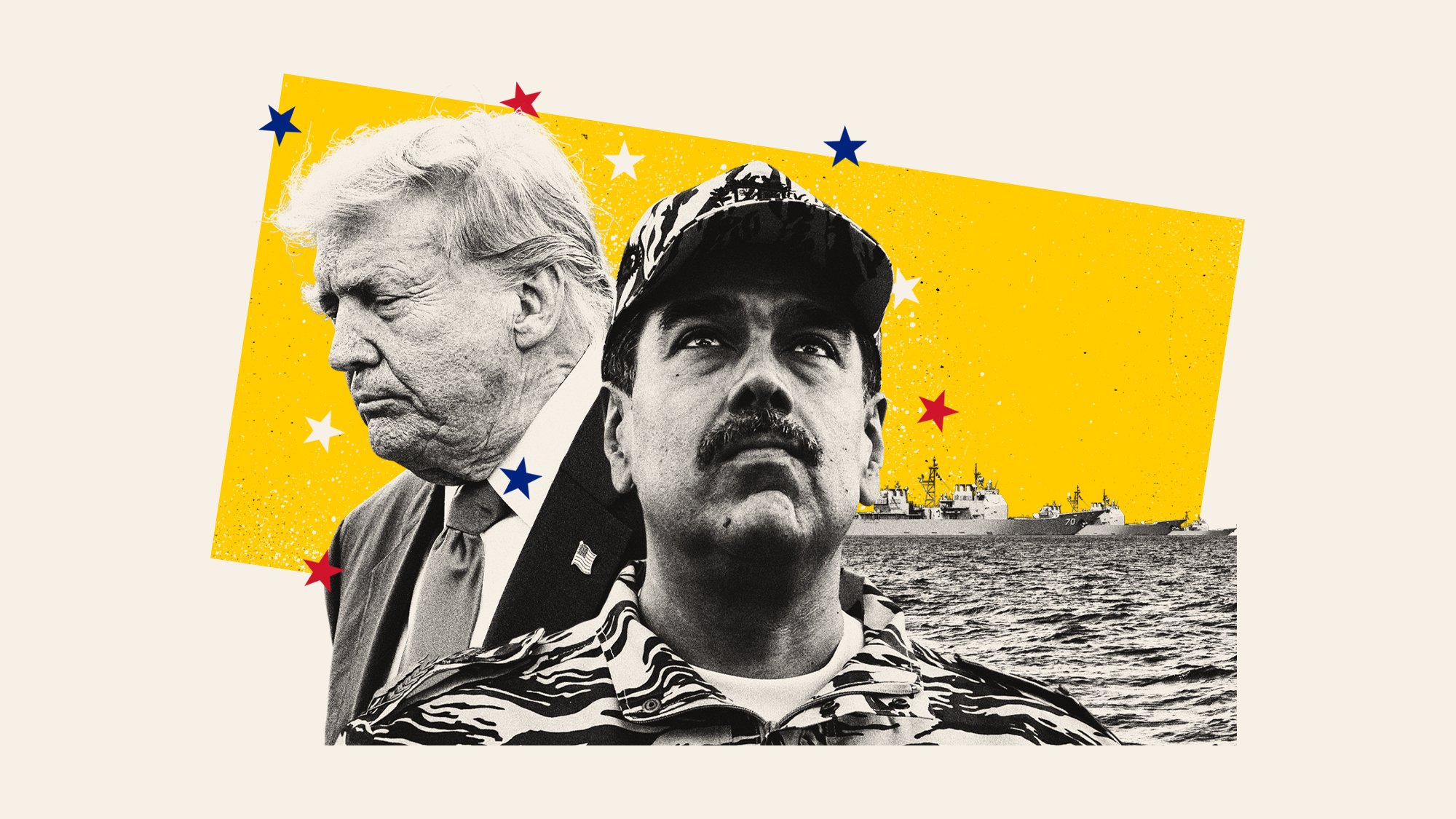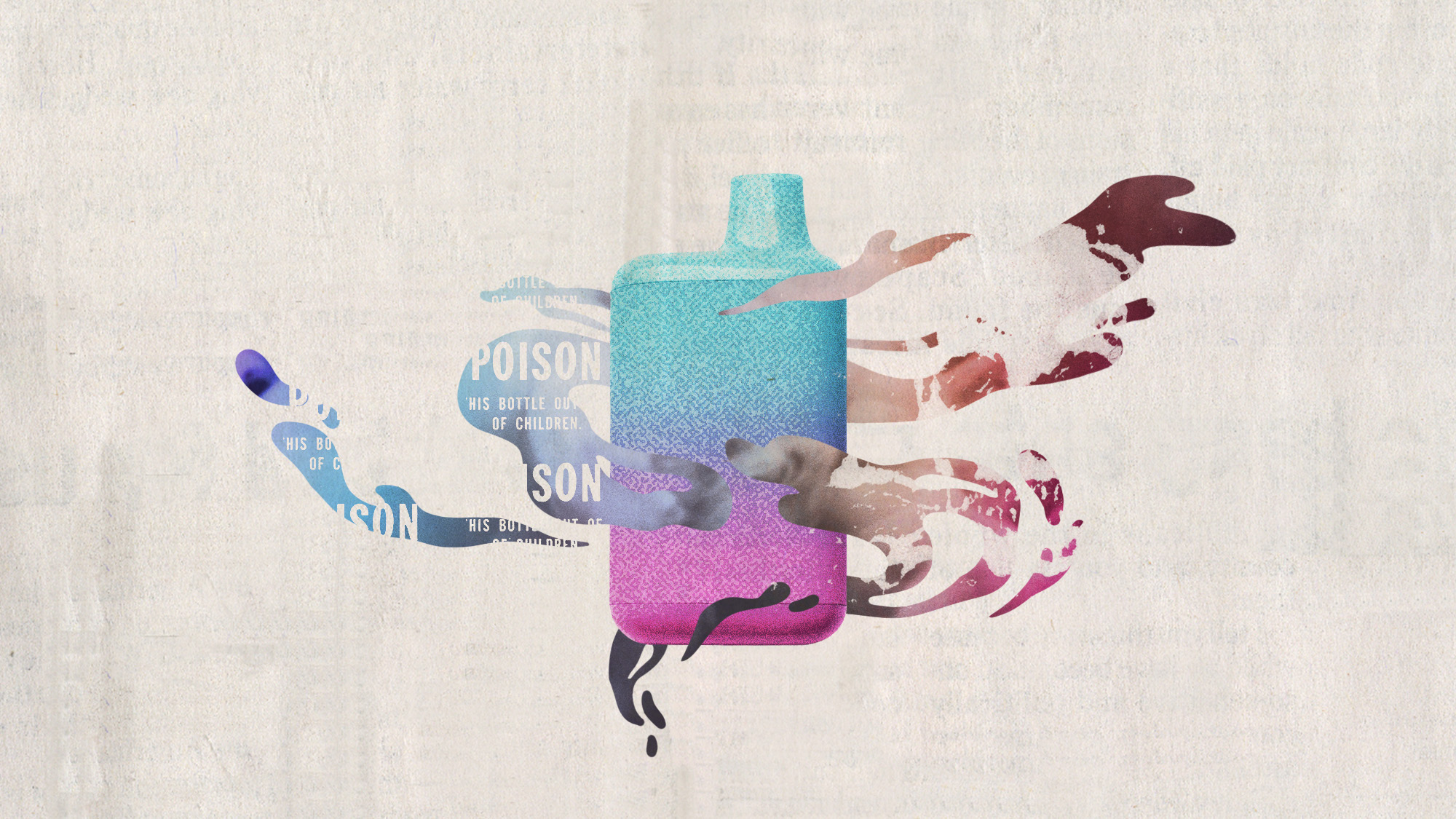What is Donald Trump planning in Latin America?
US ramps up feud with Colombia over drug trade, while deploying military in the Caribbean to attack ships and increase tensions with Venezuela

A free daily email with the biggest news stories of the day – and the best features from TheWeek.com
You are now subscribed
Your newsletter sign-up was successful
Since Donald Trump began his second term, he has put increasing pressure on multiple Latin American nations – including US allies. And the seemingly haphazard nature of his attacks is raising questions about his motives.
The US president has imposed 25% tariffs on goods from Mexico, the US’s largest trade partner. He has threatened to seize the Panama Canal and has carried out mass – allegedly unlawful – deportations of Latin Americans. He has tried to use punitive 50% tariffs on Brazilian imports, in an attempt to influence the outcome of the trial of Brazil’s former president and Trump ally, Jair Bolsonaro.
The US military has sharply increased its presence in the southern Caribbean, deploying 10,000 troops and multiple warships and aircraft. It has struck at least seven Venezuelan vessels that Trump claimed were trafficking drugs – without offering evidence. At least 32 people have been killed as of Friday. Trump has slammed Venezuelan dictator Nicolás Maduro and admitted to authorising covert CIA operations against him.
The Week
Escape your echo chamber. Get the facts behind the news, plus analysis from multiple perspectives.

Sign up for The Week's Free Newsletters
From our morning news briefing to a weekly Good News Newsletter, get the best of The Week delivered directly to your inbox.
From our morning news briefing to a weekly Good News Newsletter, get the best of The Week delivered directly to your inbox.
And on Sunday, Trump escalated his feud with Colombia, one of America’s closest allies, slashing aid and increasing tariffs on its exports because it “does nothing to stop” cocaine production. Trump called Colombian president Gustavo Petro an “illegal drug leader”, after Petro accused the US of committing “murder” in the Caribbean. He warned that Petro “better close up” drug operations or the US would “close them up for him”.
What did the commentators say?
One “lament often heard from Latin America” is that the US has “paid insufficient attention to the region”, said the Center for Strategic and International Studies. But now Trump has given it “more attention in nine months than many past administrations of either party have since the Cold War” and those countries may well “regret getting what they wished for”.
The US pivot stems from a fear that, for too long, it has “prioritised power projection and policing global hotspots over attending to its ‘shared neighbourhood’”. This has led China to “expand its influence” in the region, and allowed organised crime, drug trafficking and migration to “threaten US security”. In response, Trump “seems to be adopting a ‘Monroe Doctrine 2.0’”: abandon soft-power initiatives in favour of threatening (or deploying) military force, while “relying on economic coercion” in the form of tariffs.
The problem is that the tariffs and the cutting of “already-slashed levels” of US development and aid to Colombia will “make it harder” for Bogotá to combat the cocaine trade, said Keith Johnson on Foreign Policy. Colombia is, by far, the primary source of cocaine in the US, and, historically, “the biggest chunk” of US aid “has come in the form of counternarcotics and law-enforcement support”.
A free daily email with the biggest news stories of the day – and the best features from TheWeek.com
“If the US were truly interested in countering drug trafficking, the last thing you would do is to alienate the one military in the region” capable of fighting drug traffickers, Elizabeth Dickinson, senior Colombia analyst at the International Crisis Group, told Johnson.
US military assets in the Caribbean “are not much use” in fighting the drug trade, said The Guardian’s foreign affairs commentator Simon Tisdall – especially if their focus is on Venezuela, through which only small quantities of cocaine are trafficked to America. So what is Trump up to here?
President Maduro claims the White House is attempting to “forcibly impose regime change” on his country and is waging “undeclared war”. Analysts suggest Trump “covets Venezuela’s abundant oil, gas and mineral resources”. And there’s a personal aspect: Marco Rubio is “a long-time critic of left-wing rulers in Cuba and Nicaragua” – for him, Maduro is “unfinished business”. But, given Trump’s “hapless blundering on other key foreign issues”, the most likely explanation is that “he hasn’t got a clue what he’s doing – in Venezuela or Latin America as whole”. There is no plan.
What next?
America is Colombia’s biggest trading partner, so Trump’s threats of further tariffs have “some potential leverage”, said Johnson on Foreign Policy. But “the pain will be felt as much by US consumers as by Colombian exporters”.
In Venezuela, the Trump administration thinks “its campaign against Maduro is working”, and that increased US military pressure will convince the Venezuelan leader “he can’t remain in power”, said The Wall Street Journal. “The idea is to make him miserable enough to go away,” a senior administration official said. But, far from weakening Maduro, it might “achieve the exact opposite”, said Tisdall in The Guardian. Maduro is using the crisis to increase his grip on power.
More broadly, Trump’s “bullying of other left-leaning Latin American countries”, including Colombia and Brazil, and his “presumptuous cheerleading for right-wing populists in Argentina and El Salvador”, is “spurring a regional backlash”. Trump’s efforts to “reprise the role of Latin American neighbourhood policeman” are ultimately “self-defeating”. Long-term, the “big winner” will be China.
Harriet Marsden is a senior staff writer and podcast panellist for The Week, covering world news and writing the weekly Global Digest newsletter. Before joining the site in 2023, she was a freelance journalist for seven years, working for The Guardian, The Times and The Independent among others, and regularly appearing on radio shows. In 2021, she was awarded the “journalist-at-large” fellowship by the Local Trust charity, and spent a year travelling independently to some of England’s most deprived areas to write about community activism. She has a master’s in international journalism from City University, and has also worked in Bolivia, Colombia and Spain.
-
 The ‘ravenous’ demand for Cornish minerals
The ‘ravenous’ demand for Cornish mineralsUnder the Radar Growing need for critical minerals to power tech has intensified ‘appetite’ for lithium, which could be a ‘huge boon’ for local economy
-
 Why are election experts taking Trump’s midterm threats seriously?
Why are election experts taking Trump’s midterm threats seriously?IN THE SPOTLIGHT As the president muses about polling place deployments and a centralized electoral system aimed at one-party control, lawmakers are taking this administration at its word
-
 ‘Restaurateurs have become millionaires’
‘Restaurateurs have become millionaires’Instant Opinion Opinion, comment and editorials of the day
-
 Will increasing tensions with Iran boil over into war?
Will increasing tensions with Iran boil over into war?Today’s Big Question President Donald Trump has recently been threatening the country
-
 Corruption: The spy sheikh and the president
Corruption: The spy sheikh and the presidentFeature Trump is at the center of another scandal
-
 Rubio boosts Orbán ahead of Hungary election
Rubio boosts Orbán ahead of Hungary electionSpeed Read Far-right nationalist Prime Minister Viktor Orbán is facing a tough re-election fight after many years in power
-
 Greenland’s capital becomes ground zero for the country’s diplomatic straits
Greenland’s capital becomes ground zero for the country’s diplomatic straitsIN THE SPOTLIGHT A flurry of new consular activity in Nuuk shows how important Greenland has become to Europeans’ anxiety about American imperialism
-
 Mexico’s vape ban has led to a cartel-controlled black market
Mexico’s vape ban has led to a cartel-controlled black marketUnder the Radar Cartels have expanded their power over the sale of illicit tobacco
-
 Which way will Trump go on Iran?
Which way will Trump go on Iran?Today’s Big Question Diplomatic talks set to be held in Turkey on Friday, but failure to reach an agreement could have ‘terrible’ global ramifications
-
 Ukraine, US and Russia: do rare trilateral talks mean peace is possible?
Ukraine, US and Russia: do rare trilateral talks mean peace is possible?Rush to meet signals potential agreement but scepticism of Russian motives remain
-
 Panama and Canada are negotiating over a crucial copper mine
Panama and Canada are negotiating over a crucial copper mineIn the Spotlight Panama is set to make a final decision on the mine this summer